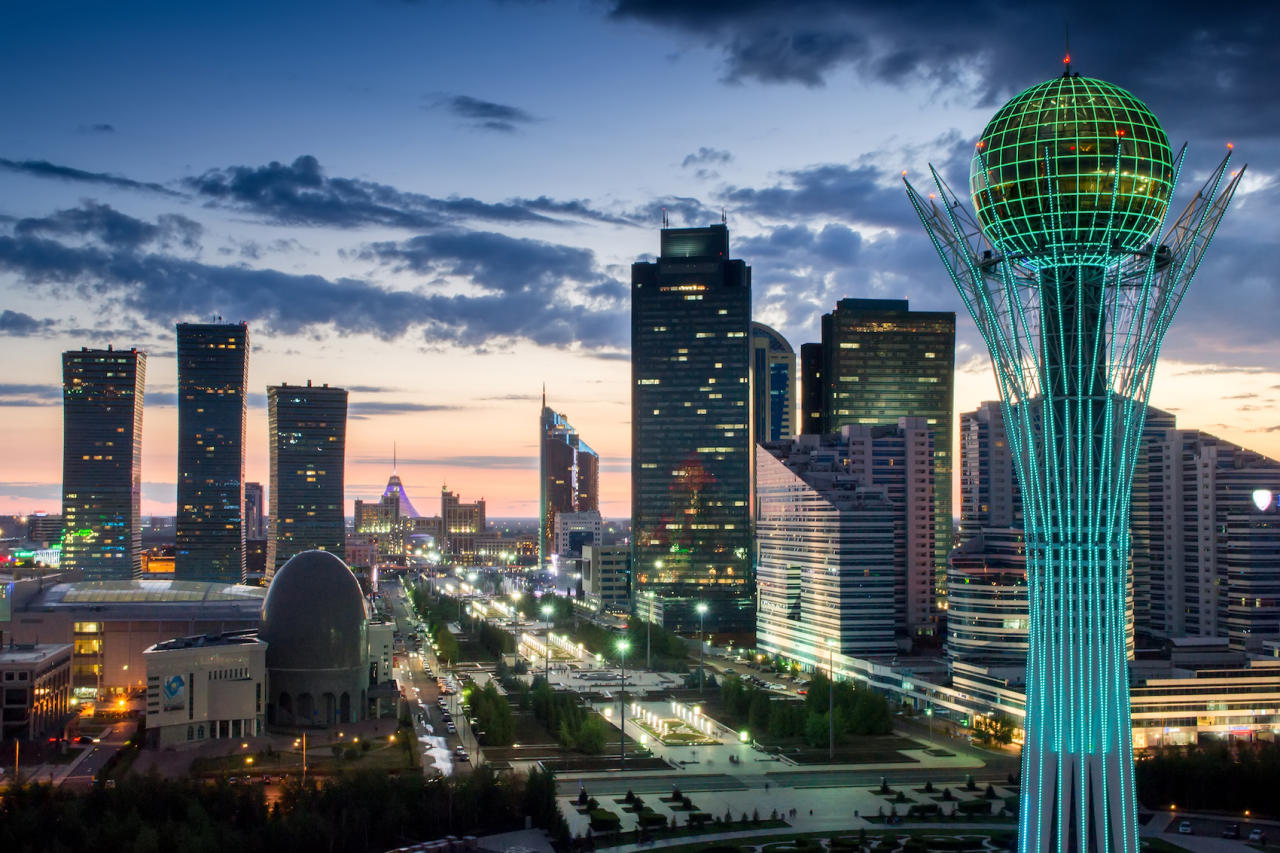Kazakhstan has attracted 41 foreign companies, with a total value exceeding $1.5 billion, by relocating their businesses from Russia amid severe sanctions on Moscow over its invasion of Ukraine.
At a recent briefing in Astana, Vice Minister of National Economy Bauyrzhan Kudaibergenov unveiled the figures, adding that the government continues to facilitate the relocation of foreign enterprises, particularly large corporations.
"The country has about 400 companies from more than 30 countries on its relocation list," Interfax quoted Kudaibergenov as saying on Tuesday. "Today, there are tangible outcomes for 41 companies, collectively valued at over $1.5 billion. Among them are entities such as InDriver, TikTok, Fortescue, among others. Additionally, work is underway for 37 companies originating from Russia. The specific companies undergoing relocation from Russia will not be disclosed at this moment."
The Vice Minister highlighted that these companies are active in sectors including manufacturing, IT, digitalization, and mining, reflecting the diversification of Kazakhstan's economy and its attractiveness to international investors.
Currently, 37 Russian companies are in the process of relocation, with a combined capitalization of approximately $1 billion. Kudaibergenov emphasized that each company's relocation process is individually tailored to ensure a smooth transition.
The move comes amid escalating tensions between Russia and Western nations following Moscow's military offensive in Ukraine. In response, Western powers have imposed strict sanctions targeting key sectors of the Russian economy, prompting many international companies to reconsider their operations in the country.
Western powers targeted several large financial institutions, Russian sovereign debt, and wealthy individuals. Sanctions on Russia’s foreign debt envisage that the country can no longer raise money from Western financial institutions for state financing.
Since the onset of the conflict, over 1,000 international companies have either abandoned or downsized their presence in Russia, resulting in substantial financial losses estimated at $200-240 billion as of October 2022.
With a population of over 19 million, Kazakhstan stands as the wealthiest and largest country in Central Asia. Over the years, the nation has undertaken significant efforts to attract foreign businesses and investments, including policy reforms and incentives for business activities.
Kazakhstan's ambition to become one of the world's top 30 economies by 2050 has been reinforced by its favorable business environment. Doing business in Kazakhstan has become easier, according to the World Bank’s 2020 ranking. The country ranked 25th, ahead of countries like Russia (#28) and China (#31), and some of the world’s developed economies, such as Italy (#58) and Brazil (#124).
Moreover, according to the IMD World Competitiveness Ranking, Kazakhstan has risen by six points compared to the 2022 ranking, securing the 37th position out of 64 countries. This advancement underscores Kazakhstan’s commitment to economic growth and attractiveness to investors. Factors such as foreign direct investment, business efficiency, and legislation have contributed to its improved ranking.
Kazakhstan has focused its efforts on recovery and growth after the pandemic, aiming to significantly increase the volume of foreign direct investments and fixed capital. One of Kazakhstan’s bold initiatives to attract investors and improve the investment climate is the introduction of a new instrument, called the strategic investment agreement, which gives the opportunity to directly sign investment contracts with the Kazakh government.
Kazakhstan's commitment to diversifying its economy is evident in its focus on sectors like IT, startups, and renewable energy, reflecting a shift away from traditional resource-based industries.
With over 60% of foreign investment directed towards non-resource sectors, Kazakhstan remains a pivotal investment partner in Central Asia, poised for continued growth and economic diversification.







 President Ilham Aliyev shed light on the evolving contours of the peace process with Armenia during an international conference in Baku this week. ...
President Ilham Aliyev shed light on the evolving contours of the peace process with Armenia during an international conference in Baku this week. ...
 Azerbaijan and Armenia started the process of demarcation of their border on Tuesday, with the installation of the first border markers based on ge...
Azerbaijan and Armenia started the process of demarcation of their border on Tuesday, with the installation of the first border markers based on ge...
 Iranian President Ebrahim Raisi expressed Tehran’s readiness to participate in significant development projects in Sri Lanka during the inauguratio...
Iranian President Ebrahim Raisi expressed Tehran’s readiness to participate in significant development projects in Sri Lanka during the inauguratio...
 Iran and Pakistan have signed eight cooperation documents in various fields, and agreed to strengthen ties to fight terrorism in the region.
Iran and Pakistan have signed eight cooperation documents in various fields, and agreed to strengthen ties to fight terrorism in the region.
 As the conflict between Ukraine and Russia escalates, the strategic importance of Kharkiv, Ukraine's second-largest city, has come sharply into focus.
As the conflict between Ukraine and Russia escalates, the strategic importance of Kharkiv, Ukraine's second-largest city, has come sharply into focus.



